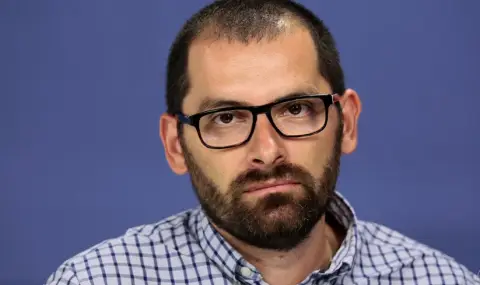The senior adviser in the UN mission for the Middle East - Miroslav Zafirov gave an interview to the journalist Tonya Dimitrova, in which he analyzed the tension in the Middle East and presented possible outcomes and scenarios of what is happening.
12 months of war. The October 7 attack dramatically shifted the tectonic plates of the Middle East. Hamas is almost destroyed. Hezbollah has been dramatically weakened in the past month. Has Israel shown the limits of Iran's playing proxy players in the region, and is Israel's current tactical advantage a strategic advantage as well?
"This is quite a difficult question, as I am not convinced that Israel is currently in a frame of mind that suggests where its strategic goals are. Israel is a country that excels at its tactical superiority. Undoubtedly, the so-called "arc of resistance" with which Iran used to scare the world is not at its best. In the twelfth month since the beginning of the war, Hamas as a military force has been almost destroyed. The blow that was struck against Hezbollah showed that Iran's strongest ally in the region is also clearly not in its best shape. Unfortunately, however, this tactical supremacy, which is undisputed and which came at the cost of massive defeats not only on the military but also on the civilian infrastructure in both Gaza and Lebanon, leaves open the question of the strategy of the apparently dominant factor Israel, and this strategy must give an answer to the question of where we are going and where the end will be".
Everyone says "easy to get into Lebanon, hard to get out". Israeli army spokesman Daniel Hagari said it would be a short operation. It will only last a few days.
"So I will first venture to say that over the last few years we have once again heard someone say that the military operation will be quick without calling it anything other than a special military operation. And unfortunately, experience suggests that these special military operations also tend to last longer than anyone anticipates. There is also a danger that this operation, if it is still called an operation, will take a little longer than it is supposed to. The original condition set by Israel - Hezbollah agreed to resolution 1701 and to de-metallize. Something the organization is unlikely to accept".
"If we proceed from the presumption that Lebanon is a country that is easily defeated, if someone thinks so. Yes, we can assume that they are indeed incapable of standing up to Israel's undisputed military might. But Hezbollah is capable of waging a war that would greatly complicate and prolong even the shortest military operation that Israel would like to conduct on the territory of Lebanon.
The missile strikes we saw this week, Iranian missile strikes against Israel. Isn't Israel putting Iran in an impossible situation and were these missile strikes a compromise? Because on the one hand, if Iran does not respond, it loses its weight in front of its proxies in the region. On the other hand, if it responds too strongly, it risks Israeli strikes on its nuclear sites.
"What happened this week was no warning. It was a multiple ballistic missile attack. How will Israel respond? I am convinced that they have hidden trump cards deep in their pockets. The question is how far this exchange of blows will go and what it will lead to. This escalation does not occur in a vacuum. We are in an environment of global instability, and when you see several hundred ballistic missiles flying against Israel, maybe the moment has come when we have to ask ourselves whether this process, everything that is happening, is being controlled. I am not convinced that the answer to this question is yes. Somehow there is no consensus at the international level on how and whether the crisis and all the crises that surround us should be solved now and in what way they should be solved. This progression of crises - it cannot be stopped and it is extremely dangerous.
